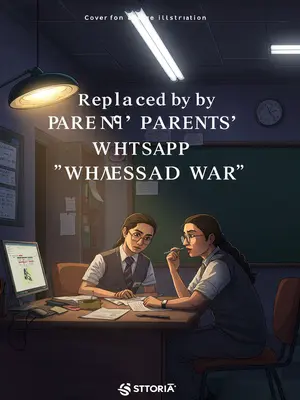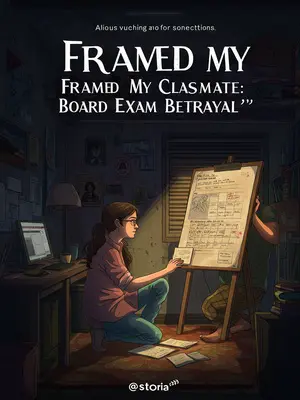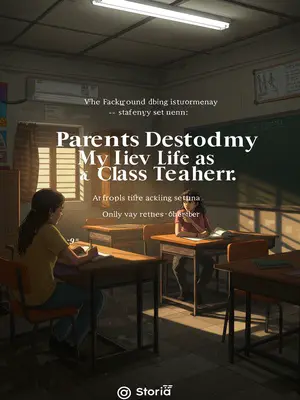Chapter 1: The Breaking Point
After seven years of marriage, my IAS officer husband hired a female tutor for our two children.
The way he spoke, adjusting his glasses with that familiar bureaucratic air, had its own weight: “You know how it is here, Shalini—people start talking if men keep coming in and out of the house. Better we keep things proper.”
His words carried an unsaid warning. In government colonies, even the faintest whiff of scandal spreads like wildfire—one never knows which neighbour is peeking through the lace curtains, ready to gossip at the next tea party. I understood well enough—the world scrutinizes women more. So, with a dry smile, I doubled the tutor’s salary. At least let her live with some dignity.
Every morning, the kitchen filled with the sharp smell of fresh coriander, and the old ceiling fan creaked above as I packed the tiffins. I’d wrap hot parathas and sabzi into steel dabbas, slip a note for each child, and press their uniforms with care. Sometimes I’d even check if their water bottles had enough nimbu-paani, always fussing—what if they got hungry or caught a chill in the over-air-conditioned classrooms? My mind never rested, the small anxieties of a mother becoming second nature. The old Hawkins pressure cooker would whistle in the background as I folded their sweaters, calling out instructions to the cook and the driver in between.
Until, on the tutor’s birthday, my husband quietly took the children out—dressed in their best clothes, hair neatly oiled—to a restaurant in Connaught Place. They returned late, the children carrying shiny balloons and leftover pastries, their faces glowing with secrets. Only then did I come to know: the female tutor was his childhood sweetheart, his old fiancée, who had endured much when he was still a nobody.
The betrayal stung all the more because even my children conspired to keep this hidden from me. Ishaan’s laughter, so innocent, still echoed in my ears:
“Papa, when will you marry Teacher Lata? Then we’ll all be a family!”
His words, spoken so easily—as if I was nothing but a shadow flitting through the house.
“Mummy just keeps telling us what to do all day. Teacher Lata lets us have fun.”
Ishaan’s voice was full of laughter, carefree, completely untouched by my pain. For a moment, I tried to steady myself, fingers fidgeting with my wedding bangles. I glanced at the small family altar in the corner, grounding myself in its flickering lamp, even as my heart ached with betrayal. The walls of the drawing room, once filled with the children’s school projects and my own framed photographs, seemed to close in on me.
“In a few days, I’ll request a legal notice for her to become my equal wife. I can’t let your mother bully Lata.”
“Long live Papa!”
I stood outside the door, listening to their laughter, my chest hollow. For a moment, I felt like an outsider in my own home. My hand trembled, clutching the edge of the wall for support. The voices from inside, so bright, made the loneliness in the corridor sharper. I wiped my tears and straightened my dupatta. Without looking back, I went directly to my aunt, the Governor’s wife, at the Raj Bhavan—my only remaining refuge.
“Aunty, please help me file for divorce!”
The words tasted bitter. The palace-like hush of the Raj Bhavan’s drawing room, with its sandalwood furniture and soft carpets, felt strangely cold.
“But what about those two children?”
I raised my head, my eyes brimming with tears, but my voice did not waver. “I don’t want a single one!”
I stared at the carved sandalwood doors, wondering if I’d ever cross this threshold again.













